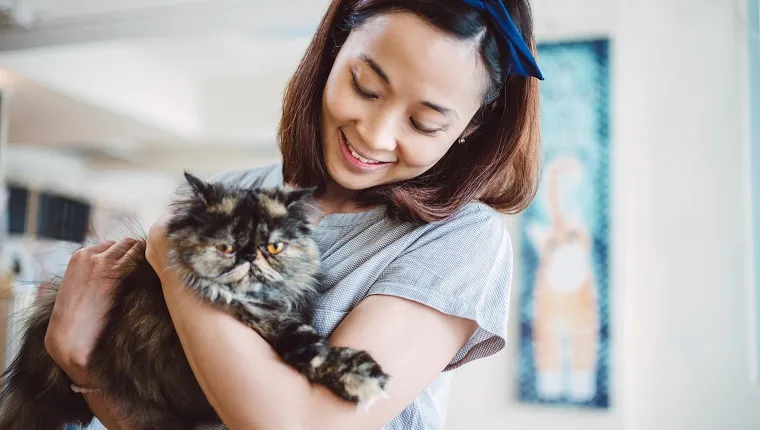Hello, fellow cat enthusiasts! If you’ve ever tried to scoop up your feline friend for a cozy cuddle and were met with a not-so-subtle squirm, you might be wondering, “Why doesn’t my cat like to be picked up or held?” Fear not, for today, we’re delving into the quirky world of cat behavior to uncover the reasons behind this puzzling phenomenon.
Cat Cuddles: A Complex Conundrum
Let’s start by acknowledging that cats are wonderfully complex creatures, and their preferences can be as unique as their personalities.
The Independent Instinct
Cats have a reputation for being independent beings, and it’s no exaggeration. Unlike dogs, who often revel in being picked up and cuddled, cats tend to cherish their personal space.
Respect the Cat Code
Cats have a “cat code” of conduct that includes rules about personal space and territory. Picking them up without permission can sometimes violate this code.
The Reasons Behind the Resistance
Now, let’s explore some common reasons why your cat might not be a fan of being picked up or held.
The Fear Factor
Early Experiences: If a cat has had negative experiences with being held or was mishandled as a kitten, they may develop a fear of it.
Unpredictability: Cats are creatures of habit, and unpredictability can make them feel uneasy. Being suddenly scooped up can be startling.
Discomfort and Pain
Physical discomfort, such as joint pain or injury, can make being held painful for your cat. If you notice any signs of discomfort, consult with a vet.
Overstimulation
Cats have sensory thresholds, and being held might overstimulate them, leading to stress or anxiety. They might prefer interaction on their terms.
Building Trust and Comfort
If you’d like your cat to be more receptive to being picked up or held, there are ways to build trust and create positive associations.
Gentle Gradual Introduction
Start by gently introducing your cat to being held for short periods. Gradually increase the time and ensure they feel safe and comfortable.
Positive Reinforcement
Reward your cat with treats and affection when they allow themselves to be held. Positive reinforcement can create a more positive association.
Understanding Your Cat’s Preferences
It’s crucial to respect your cat’s individual preferences. Some cats may never enjoy being held, and that’s perfectly fine.
Communication
Learn to read your cat’s body language. If they show signs of discomfort or resistance, it’s best to respect their boundaries.
Alternative Affection
Remember that there are plenty of other ways to show affection to your feline friend, from gentle strokes to interactive playtime.
Seek Expert Advice
If your cat’s aversion to being held is sudden or severe, it’s wise to consult with a veterinarian to rule out any underlying health issues.
Vet’s Insight
Veterinarians can assess your cat’s physical health and behavior to determine if there are any medical reasons for their aversion to being held.
Government Guidelines
Government bodies like the American Veterinary Medical Association (AVMA) offer valuable resources on understanding and caring for your pet’s unique behavioral traits.
In Conclusion
So, why doesn’t your cat like to be picked up or held? The answer may lie in their individual history, preferences, or physical comfort. The key is to respect your cat’s boundaries, create positive associations, and communicate with them in ways that make them feel safe and loved.
Remember, every cat is a unique individual, and as their loving guardian, your job is to provide them with the care and understanding they need to thrive. Whether your cat loves being held or prefers to keep all four paws on the ground, they’re undoubtedly the purr-fect companion in their own special way!
- Best Hunter.io Alternatives for 2025 - April 19, 2025
- Best Lead411 Alternatives for 2025 - April 19, 2025
- Best Leadzai Alternatives for 2025 - April 18, 2025



